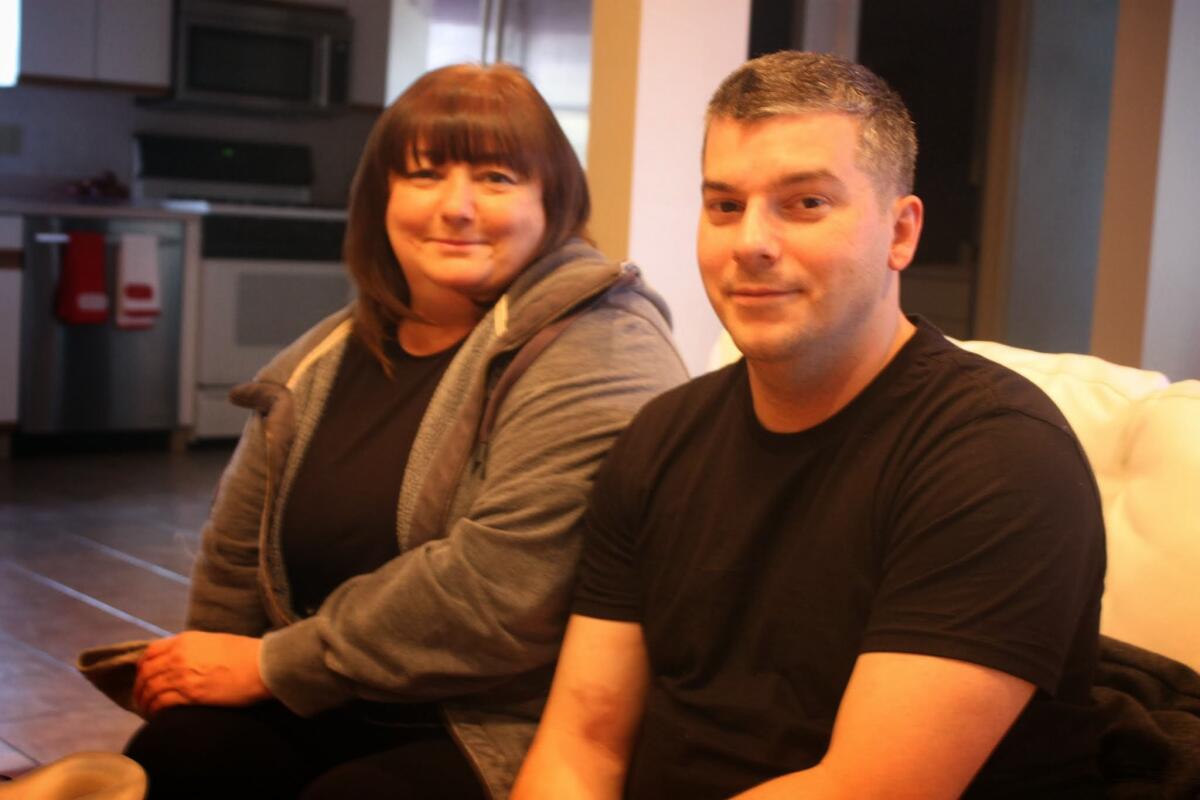Boston Marathon victims pay it forward with new charities

- Share via
Tens of thousands of people donated money to the One Fund, the charity created by officials after the Boston Marathon bombings. Victims received get-well cards from around the country, as well as flowers and notes of encouragement from total strangers.
Overwhelmed by the outpouring of support, some of the victims have focused their attention on creating new charities -- not for themselves, but for others who have faced similar obstacles, out of the spotlight.
Jarrod Clowery, who was pierced by shrapnel during the bombings, says that in his darkest days after the bombings, he’d go into the bathroom of his hospital room, take off his bandages, and start picking at the pieces of jeans embedded in his skin until he bled. Nurses were going to put him on 24-hour surveillance, he said, and just as he reached his lowest point, he stopped and looked at the dozens of letters posted around his hospital room from kids across the country. It was enough to get him in a better mental place, he says.
Now, he has created “Hero’s Hearts Foundation,” which aims to “recognize everyday heroes and motivate individuals to achieve heightened goals.” Clowery wants to use technology to link classrooms to “everyday heroes” and also persuade children not to bully one another.
He says that the process of getting a foundation started has been a necessary distraction from the memories of that bloody day in April.
“Without my foundation, without my friends and the support that I had, I would hate to see mentally where I would be,” said Clowery, 36, who still has hearing problems nearly nine months after the bombings.
Clowery jokes that his friends are sick of hearing about the foundation, which is all he talks about these days. But talking about a foundation is better than talking about the taste of gunpowder in his mouth after the bombings, and about the bloody sights he saw when he stood up after the booming noise.
“My doctor says, ‘If he’s positive and upbeat, that’s the way we want him, let him rant and rave about the foundation,’” Clowery said.
Karen Rand lost a leg during the marathon bombing. She also lost her best friend, Krystle Campbell, who was one of three people killed that day. Rand and her boyfriend, Kevin McWatters, say they’ve been flattered by the support from across the country -- and feel a little bit guilty. So when the two heard about a 13-year-old girl from El Salvador who had been hit by a car and lost a leg, they were drawn to pay it forward.
A friend told them about Melissa Estefania Salinas, who was being raised by a single mother who didn’t have funds for a prosthetic limb. The two convinced NextStep, a prosthetic limb maker, to give Salinas a leg free of charge, and also started raising money for the girl. So far, they’ve helped raise $7,000.
“We got involved because of all of the outpouring of love and support we got, but no one’s there to help this little girl,” McWatters said. “It just dropped into our lap.”
The family of Martin Richard, the 8-year-old boy killed in the blast, said in an announcement this month that as of Jan. 2 they had created a foundation, the Martin W. Richard Charitable Foundation, which aims to “honor Martin’s message of ‘No More Hurting People -- Peace,’” by investing in education, athletics and community. The foundation is recruiting a team of charity runners for the 2014 Boston Marathon, which will run under the team name MR8.
“This foundation will be a legacy for Martin, allowing us to “pay it forward” and make a difference in ways that would make him proud but also be a source of healing and purpose for us,” the family said in a statement.
Jane Richard, Martin’s younger sister, lost her leg in the blast, though she has started playing basketball, the family said. She would have been on the same team as Martin.
Of course, many marathon victims also have their own funds to raise money for the expenses that they’ll likely incur for the rest of their lives. Prosthetic limbs have to be replaced every few years and they cost thousands of dollars, as do the rehab and medical care many victims need. Many victims are no longer able to work in the jobs they had before the bombing and are uncertain how they will support themselves.
The One Fund so far has distributed $61 million to 231 victims, its backers said in a January statement. It has raised $12 million since then and will distribute that as well, even as it collects more donations. But some victims aren’t depending on the donations alone.
J.P. and Paul Norden, featured in a Los Angeles Times article about how family members of the victims have been affected, have a GoFund to raise money for their continuing care and the costs of prosthetic limbs. The two aim to raise $500,000, and have so far raised about $60,000.
ALSO:
Supreme Court turns down Arizona abortion challenge
Embattled Christie faces audit over hurricane recovery funds
Feds to probe why Southwest flight landed at wrong Missouri airport
Twitter: @AlanaSemuels
More to Read
Sign up for Essential California
The most important California stories and recommendations in your inbox every morning.
You may occasionally receive promotional content from the Los Angeles Times.














